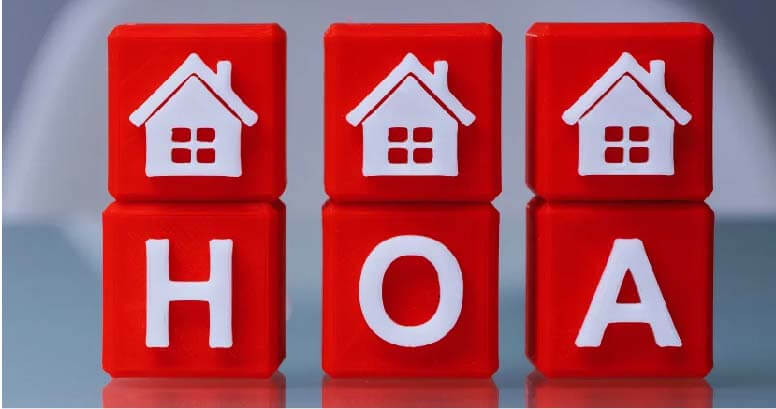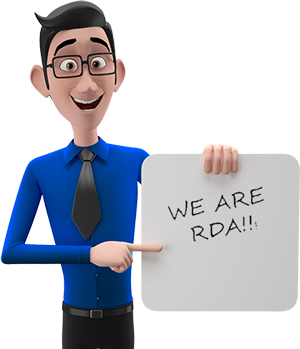Fiduciary duty is a fundamental obligation for HOA board members, defining their responsibilities to act in the best interests of the community they serve. Board members are entrusted with maintaining the association’s financial health, ensuring transparency, and making decisions that align with the welfare of all residents. Understanding fiduciary duty not only safeguards the board’s integrity but also fosters trust within the community.
This article delves into the essential concepts of fiduciary duty for HOA board members, exploring key aspects such as duty of care, loyalty, and good faith. By adhering to these principles, board members can ensure effective governance, uphold community standards, and contribute to a positive living environment for all residents.
Overview of Fiduciary Duties
Homeowners Associations (HOAs) operate through a Board of Directors, whose members hold substantial fiduciary responsibilities to their community. The board’s foremost duty is to serve the association’s best interests, placing the needs of the community above personal gains, thereby showcasing a duty of loyalty. This encompasses acting in good faith and fairness in all transactions.
Additionally, there is the duty of care, which requires board members to make informed decisions. Such decisions involve conducting reasonable inquiry, engaging in thorough research, and seeking expert advice when necessary. The goal is to ensure that any actions taken are the result of diligent deliberation and align with the expectations of prudent persons placed in similar positions.
The board also has a duty to act within the scope of its authority, which means making decisions that conform to the HOA’s governing documents as well as state and federal laws. Exceeding this authority could lead to legal repercussions and undermine the community’s trust in its leadership.
To mitigate risks associated with their responsibilities, Association Boards often invest in liability insurance and employ the business judgment rule, which provides legal protection for decisions made in good faith.
In summary, Community Association Boards, like any individual board member within a non-profit corporation, must operate with the utmost integrity and wisdom, maintaining a commitment to their essential fiduciary duties.
Duty of Care
The duty of care is a critical component of the fiduciary responsibilities that Homeowners Association (HOA) board members must adhere to. It essentially translates to the requirement for board members to make informed decisions in the best interests of the community, especially when voting on community matters. This includes the necessity for undertaking thorough research and demonstrating due diligence to ensure that every decision is backed by a reasonable inquiry. Board members are expected to enforce the governing documents of the HOA diligently and to use their best judgment—even in situations where their choices may not align with the popular sentiment among homeowners.
To effectively fulfill their duty of care, board members should be actively involved in board meetings, posing relevant questions, and staying current with the association’s rules, bylaws, and regulations. It’s crucial that they cast votes based on adequate information, which may be provided by HOA managers or staff, but the ultimate responsibility of the decision remains with the board members. Unfortunately, breaching the duty of care can happen inadvertently if board members neglect the importance of their role, thus highlighting the need for constant and thorough participation.
Definition and Importance
A fiduciary duty is the legal and ethical obligation that binds HOA board members to act solely in the best interests of the association and its homeowners. At its core, the duty of an HOA board member is made up of three fundamental elements: the duty of loyalty, the duty of care, and the duty to act within the scope of authority. The duty of loyalty, also known as acting in good faith, dictates that board members should always prioritize the welfare of the entire community and evade any conflicts of interest.
In addition, board members must exhibit informed decision-making and display astute business acumen to meet their duty of care. Any action taken must be justifiable, showing that it was reasonable and not random or flippant. Infringement of these fiduciary duties, whether through negligence or mismanagement, can attract significant legal consequences for both the individual board members and the association as a whole.
Best Practices for Upholding Duty of Care
In order to uphold the duty of care, HOA board members must consistently employ due diligence when it comes to community matters, thoroughly researching and vetting issues prior to voting. They must keep abreast of the association’s regulations, a critical practice, particularly before enforcing penalties for covenant violations.
While HOA managers or staff can be invaluable resources for information, board members cannot eschew ultimate accountability for the decisions made. Board members are tasked with the obligation to be present at all board meetings and remain knowledgeable about pertinent laws, regulations, and trends in the market that could influence their decision-making.
Directors are to comport themselves as any prudent person would under comparable circumstances, holding themselves to a high standard of caution and honest dealing in fulfilling their responsibilities. By doing so, board members help foster trust, transparency, and legal compliance within their communities, while also ensuring the HOA’s actions benefit all members equitably.
To visually structure this information, consider using tables for comparison, such as a table contrasting proper due diligence with insufficient due diligence, or a list analyzing the common pitfalls and best practices in upholding the duty of care.
Duty of Loyalty
The duty of loyalty is a core component of the fiduciary responsibilities held by HOA board members. This duty mandates that board members prioritize the interests of the association above their own individual interests or the interests of any other party, including family members or friends. Essentially, board members are called to serve their association with the utmost good faith, integrity, and fidelity.
In situations that may give rise to conflicts of interest, such commitment to the association’s welfare becomes even more critical. Board members must be vigilant in recognizing these situations and should actively avoid any decision-making that could benefit them personally at the expense of the community. Breaching the duty of loyalty is not a mere lapse in judgment; it can lead to serious legal and financial ramifications, such as liability for improper profits or compensation for damages suffered by the association.
Disclosing potential conflicts of interest is not simply encouraged; it is a legal necessity for HOA board members. This transparency is essential to ensure that all decisions are made objectively and that no undue influence is exerted by any single board member. Furthermore, this duty extends to safeguarding the confidentiality of homeowners’ private information, further protecting the association and its members.
Avoiding Conflicts of Interest
To preserve the integrity of the Community association boards and to fulfill their duty of loyalty, board members must conscientiously avoid conflicts of interest. Practically speaking, this means refraining from engaging in any action that can compromise their capacity to act in the best interest of the HOA and its members. In certain circumstances where personal interests might intersect with those of the association, transparency becomes the key to maintaining trust.
Board members should make a clear, formal disclosure of any potential conflicts of interest, and in cases where such conflicts are present, they should refrain from participating in votes or discussions related to the matter. This precautionary step ensures that board decisions are not influenced by personal gains but are instead the product of fair, unbiased deliberation in the association’s favor. Engaging in favoritism, or the appearance thereof, can damage the communal trust and undermine the board’s collective authority.
To hold board members accountable and keep Association Boards functioning transparently, it is commonly suggested that such disclosures be visibly documented, for example, in the minutes of board meetings. By doing so, Homeowners Associations demonstrate a clear commitment to ethical governance and the welfare of their communities.
Duty of Confidentiality
The commitment of HOA board members to the duty of confidentiality is paramount in preserving the community’s trust and the integrity of the Association Boards. This obligation means that sensitive homeowner information, such as details surrounding financial struggles or individual payment plans, are to be handled with the utmost discretion. Board members have a legal and ethical requirement to keep this information secure and private.
In cases where information is disclosed inadvertently or intentionally, the ramifications can be dire. Not only can such actions infringe upon privacy laws, but they can also lead to increased tensions among residents, fostering an environment of mistrust and unease within the community that the board aims to serve. Furthermore, these breaches of confidentiality can potentially escalate into legal disputes, creating unnecessary conflict and expense for the Homeowners Association.
When dealing with association business, it is crucial that the entire board treats matters with a level of confidentiality due defenders of the trusted positions they hold. This confidentiality extends to all sensitive information, including but not limited to vendor contracts, which contain proprietary data about pricing and business tactics. The protection of this information safeguards the interests of the vendors as well as the financial interests of the Homeowners Association.
Moreover, the responsibility to maintain confidentiality does not cease once a board member’s term has concluded. The duty to protect and keep confidential information secure endures beyond their active service, ensuring continuity of privacy for all involved. Board meetings, where much of this delicate information is discussed, are to be facilitated with discretion, often governed by regulations that limit the discussion of certain topics only to executive sessions.
Maintaining Privacy and Trust
In adhering to the duty of confidentiality, HOA board members play a crucial role in bolstering privacy and trust within the community. It is imperative that they refrain from releasing private information shared in confidence by the homeowners, such as notices of impending home foreclosures. Being privy to this information carries the weight of responsibility; it must never traverse the confines of the boardroom or the circle of the individual board members.
Practices that ensure the confidentiality of sensitive information translate directly into building and maintaining trust amongst homeowners. When residents feel confident that their personal circumstances are safeguarded, it fosters a supportive and cohesive community atmosphere. Conversely, disclosure of such confidential matters, especially those of a financial nature, not only undermines the privacy laws but also damages the foundational neighborly fabric of the association.
Vendor partnerships are an extension of the Association’s business dealings and thus demand the same degree of confidentiality. Protecting the intricacies of vendor contracts ensures the interests of both the vendors and the association are preserved, preventing competitors from gaining unfair advantages.
The Board of Directors’ adherence to these confidentiality protocols is not only a facet of the duty of loyalty and informed decision-making but also key in upholding legal compliance with privacy laws. These regulations govern the management of personal information, and noncompliance can have significant legal repercussions for the HOA.
In summary, the fiduciary responsibilities of HOA board members encompass a stringent upkeep of discretion concerning sensitive information. By fulfilling their Duty of Confidentiality, board members uphold the very trust and privacy upon which healthy, robust communities are built.
The Business Judgment Rule
The Business Judgment Rule (BJR) is a legal principle that serves to protect board members of non-profit corporations, including Community Association Boards, from personal liability arising from their decision-making processes. This rule assumes that board members are better suited to make informed decisions on behalf of the association, and as such, courts are hesitant to second-guess these decisions. Provided that the decisions are made in good faith, within the bounds of their authority, and with a reasonable degree of care and diligence, board members are generally shielded from liability under the BJR.
Importantly, for the Business Judgment Rule to apply, decisions must not only be made with an honest belief in the best interest of the Homeowners Associations but also after a suitable level of reasonable inquiry. This means that association boards should seek to gather all appropriate information before making decisions. Under the Business Judgment Rule, courts will traditionally not interfere with the internal management of community associations in cases of fraud, bad faith, or gross mismanagement. In areas where BJR is recognized, should a dispute arise, it falls to the homeowner to provide evidence that board members have breached their fiduciary duties.
Definition and Purpose
The concept of fiduciary duty lies at the core of the responsibilities held by the Board of Directors in Homeowners Associations. Defined as an ethical and legal obligation to act in the best interest of the association, the fiduciary duty compels board members to prioritize the association’s interests in every decision and action they take. This fiduciary responsibility incorporates several fundamental aspects, such as the duty of loyalty, where the board members must avoid conflicts of interest and self-dealing; the duty of care, where they must make informed decisions; and the requirement to act within the scope of their granted authority.
The aim of these fiduciary responsibilities is to ensure that board members’ actions are aligned with the goals of maintaining or enhancing property values and the overall well-being of the association. As representatives of the community, board members are expected to conduct a due and reasonable inquiry into the matters at hand, ensuring their decisions are financially prudent, legally compliant, and ethically sound, reflecting the interest of the association as a whole, rather than any individual member’s agenda.
Protecting Board Members from Liability
HOA board members are subjected to various potential risks of liability, ranging from issues of failure to maintain common areas to allegations of discrimination. Various provisions have been established under state laws and within HOA bylaws to help shield board members from personal liability. These measures include limiting board members’ liability and providing indemnification against certain expenses.
In Colorado, for example, the articles of incorporation or the bylaws of a nonprofit corporation may offer limitations on the personal liability of its board members, which mitigates the risk and exposure to potential lawsuits. Protection is typically afforded to those actions undertaken in good faith and without gross negligence or willful misconduct, which would otherwise incur personal liability.
Furthermore, to bolster the protection of board members, HOA boards are encouraged to maintain comprehensive liability insurance policies. Such policies, including directors and officers liability coverage, are designed to protect board members and the associations from financial losses due to lawsuits concerning their board activities. These measures collectively aim to provide peace of mind for board members, enabling them to perform their governance roles effectively without undue fear of personal financial repercussions.
Adhering to Governing Documents
Adhering to the governing documents of a Homeowners Association (HOA) is not just a matter of formality—it is a fundamental aspect of an HOA board member’s fiduciary responsibility. The specific documents that outline these directives include the association’s articles of incorporation, bylaws, and the Declaration of Covenants, Conditions, and Restrictions (CC&Rs). Familiarity with these materials is essential for board members to comprehend the extent of their obligations and the scope of their authority. Furthermore, whenever there is a conflict between state statutes and governing documents, it is typically the state statutes that prevail, with the exception of when the declaration or covenants would take precedence over bylaws.
Consistent and fair enforcement of these governing texts is crucial to prevent claims of breach of fiduciary duty and to carry out their duties effectively. HOA board members should work within the boundaries set by these documents, ensuring congruence with the rules and regulations that have been agreed upon by the community. Additionally, it is imperative that the enforcement of rules is uniform, making it clear that all residents are equally subject to the stipulations set forth in the governing documents without bias or exemption. This uniformity reinforces the board’s commitment to their duty of loyalty to the association.
Understanding HOA Bylaws and CC&Rs
The Declaration of Covenants, Conditions, and Restrictions (CC&Rs) holds significant weight in defining the rules of an association. It lays out what homeowners can and cannot do, making its consistent and equitable enforcement a top priority for the HOA board. This delicate act of maintaining fairness while upholding the rules is a testament to the board’s duty of loyalty.
Articles of incorporation lay the foundation for the HOA’s legal existence as a non-profit corporation, signalling its governance structure. Moreover, the governing documents, such as the CC&Rs and bylaws, frequently contain hold harmless and indemnity provisions. These sections are designed to shield board members from liability for negligent acts that may occur during their tenure, provided they act within the confines of their role and in good faith.
When it comes to conflicts between state statutes and the association’s governing documents, it’s important to note that the broader condominium or association statutes generally override the specifics within the declaration or bylaws. This hierarchy ensures that the governance of the HOA is in line with overarching legal frameworks.
The Role of Governing Documents in Decision-Making
The authority wielded by an HOA is rooted in state laws and the specific governing documents crafted for the community. These documents dictate the responsibilities and powers of the association, shaping every decision and enforcement. It’s incumbent upon board members to thoroughly review these materials to fully grasp the extent and limits of their roles.
If the governing documents do not explicitly permit the board to adopt certain new rules and regulations, this oversight can lead to the nullification of such restrictions. Thus, the board’s directive to interpret and execute the governing documents requires careful consideration of any violation and a discerning approach to foster compliance among homeowners.
Decisions by the board must be carefully aligned with the established documents. Any action taken outside the remit of their authority risks breaching fiduciary duties and could potentially bring about legal consequences. In such instances, boards often rely on the advice of legal counsel to navigate the complexities of homeowners association governance.
Understanding HOA Bylaws and CC&Rs
Understanding HOA Bylaws and CC&Rs
Homeowners Associations (HOAs) are governed by a set of documents that dictate their operation and the conduct of their members. Key among these are the Declaration of Covenants, Conditions, and Restrictions (CC&Rs) and the HOA’s bylaws.
The CC&Rs are akin to the association’s constitution, detailing the dos and don’ts for homeowners. Enforcing these rules is a pivotal duty of the HOA board, ensuring fairness and consistency in preserving the community’s character and value.
Additionally, the HOA’s legal foundations are laid out in its articles of incorporation. This document confirms its status as a non-profit corporation and is instrumental in shaping its governance.
Board members find protection under hold harmless and indemnity clauses within these governing documents. Such provisions safeguard board members from liability for actions taken in goodwill during their tenure.
However, it’s important to note that when discrepancies arise between the association’s documents and state laws, the latter usually prevails. Understanding both is crucial for every member to navigate their rights and responsibilities within the HOA.
|
Document |
Purpose |
|---|---|
|
CC&Rs |
Define community standards and homeowner obligations |
|
Bylaws |
Outline the HOA’s operational structure and procedures |
|
Articles of Incorporation |
Legal framework for HOA’s non-profit status |
|
State Statutes |
Overarching laws governing HOA operations |
Remember, the CC&Rs and bylaws are not just rules but covenants that bind the community together. It’s essential for both board members and residents to be well-informed about these provisions to ensure harmony and proper management within the HOA.
The Role of Governing Documents in Decision-Making
The Role of Governing Documents in Decision-Making
Homeowners Associations (HOAs) are guided by a framework of state laws and internally set governing documents that define their powers and obligations. To make informed decisions, members of HOA Board of Directors must diligently review and understand foundational documents such as articles of incorporation, bylaws, and Covenants, Conditions & Restrictions (CC&Rs). These documents are critical in outlining the boundaries of a board’s authority.
Key Governing Documents:
- Articles of Incorporation: Establishes the HOA as a legal entity.
- Bylaws: Lays out the procedures for board meetings, elections, and other aspects of HOA governance.
- CC&Rs: Details the enforceable rules of the community that homeowners must abide by.
Here is a high-level glance at their impact on decision-making:
|
Governing Document |
Function in Decision-Making |
|---|---|
|
Articles of Incorporation |
Defines the scope of the HOA’s powers and duties. |
|
Bylaws |
Dictates procedural rules for how the board operates. |
|
CC&Rs |
Provides specific regulations and restrictions to enforce within the community. |
If a board’s decisions digress from these foundational guidelines, any new rules or enforcement measures might be voided as unauthorized, breaching their fiduciary duty. The interpretation and enforcement of these documents must be done with precision and due regard for every compliance issue, ensuring that board actions are consistently and justifiably guided by their established authority.
Compliance with State Laws
In the intricate governance of Homeowners Associations (HOAs), compliance with state laws stands as a pivotal requirement for board members. These laws, which can vary greatly from state to state, lay down the legal framework within which HOAs must operate. Board members must therefore not only be aware of these regulations but must possess a clear understanding of them to fulfill their fiduciary responsibilities effectively.
Legal advice is often a necessary recourse before board decisions are made, as missteps could lead to legal liability for the association and its board. For example, in California, the Davis-Stirling Common Interest Development Act contains specialized requirements that affect HOAs. Board members in such jurisdictions must ensure that the actions and policies of the HOA are in strict adherence to this act.
Additionally, board members must remember that their association’s governing documents, including bylaws and the declaration, act as a binding contract amongst HOA homeowners. When these internal regulations come into conflict with state statutes, legal complexities arise that necessitate meticulous attention and possibly professional counsel to navigate.
Failure to follow state statutes and governing documents can be considered a violation of the HOA’s fiduciary duty. Such neglect is potentially actionable as fiduciary mismanagement, reinforcing the necessity for board members to tread with vigilance in their governance roles.
State Regulations Affecting HOAs
Each state carries distinct statutes that impact the operation of HOAs. The breadth of these laws means that every board member must be versed in the specifics that relate to their association. For instance, the aforementioned Davis-Stirling Act in California lays out comprehensive guidelines for HOAs within the state. Compliance is not just a matter of legal formality but a cornerstone of functional HOA governance.
Associations that encompass condominiums are subject to additional state-specific regulations. The nature of these communities often means more complex legal exposure, requiring more stringent adherence to state laws and prudent governance practices.
HOAs are frequently structured as non-profit corporations, and as such, they are subjected to state corporate law. This body of law imposes fiduciary responsibilities on board members compelling them to act in the best interest of the corporation. It’s crucial to recognize that while state laws can enhance the accountability of a board member, they can also provide protections. Some statutes offer liability limitations, which might be integrated into the association’s bylaws or articles of incorporation, mitigating the personal vulnerability of individual board members.
Legal Obligations for Board Members
The role of an HOA board member is one imbued with fiduciary obligations that parallel those of corporate directors. This duty mandates board members to prioritize the welfare of the association and its homeowners above personal interests, acting with the highest degree of good faith and integrity.
Key among these duties is the compassion to make informed decisions, premised on reasonable inquiry and grounded in the community’s best interests. This often entails operating within the prescripts of the Business Judgment Rule, which demands actions are taken with ordinary care and loyalty.
Given the complexity of association bylaws, articles of incorporation, and CC&Rs, board members have an implicit charge to familiarize themselves thoroughly with these documents. An in-depth understanding is key to navigating their legal obligations, scope of authority, and the prudent discharge of their duties.
Moreover, an integral aspect of a board member’s fiduciary role involves upholding the confidentiality of sensitive homeowner information. Such information, trusted to the board during the course of its duties, must be fiercely protected and disclosed only with proper authorization.
In summary, the network of statutes, corporate laws, and governing documents forge the path along which board members must travel, always with a compass pointing toward the best interests of the community they serve.
Maintenance of Common Areas
Maintaining the common areas within a Homeowners Association (HOA) is critical to preserving the overall value and aesthetic of the community. The board is tasked with this crucial element of HOA governance, as outlined in the association’s declaration or bylaws. These documents specify the extent of the association’s maintenance obligations, distinguishing them from those responsibilities that fall to individual homeowners.
For the board, which acts under the guidance of informed decisions, the challenge lies in effectively addressing the myriad repair and maintenance requests from community members. At times, balancing these requests can be complex, demanding the board to weigh priorities and allocate resources judiciously. The board’s duty is to ensure these common spaces are kept in optimal condition, fulfilling the expectation of association members that their shared environment is well-cared for.
To neglect the upkeep and repair of common areas can result in significant repercussions for the board, potentially being viewed as a breach of fiduciary duty. This duty embodies not just the day-to-day maintenance but also the proactive protection and enhancement of these common areas. As they are the primary assets of the association, their care is paramount and requires the ongoing, concerted effort of individual board members and the collective body at board meetings.
Responsibilities for Common Property
To adequately fulfill its various duty, the HOA board must ensure the common property is safeguarded and financially viable. Board members must actively protect, preserve, and enhance the association’s assets, with special emphasis on common areas such as parks, pools, and recreational facilities.
One key aspect of this responsibility is making sure the property meets all tax obligations and is covered by the necessary insurance. In case of disputes or defects concerning common property, the board acts as the steward for the unit owners, representing their collective interests in pursuing claims or seeking tax relief.
Maintaining clear, accurate records of all transactions, decisions, and maintenance activities is another important facet of the board’s responsibility. Proper bookkeeping plays a vital role in managing the association’s finances, ensuring transparent and effective financial stewardship. By adhering to these practices, board members demonstrate a commitment to acting in the best interests of the association, a cornerstone of their fiduciary duty.
Budgeting and Funding for Maintenance
Effective financial planning is indispensable for the HOA board, particularly when there are physical assets that require ongoing maintenance. Creating a comprehensive maintenance plan must include conducting periodic inspections and establishing a schedule for necessary repairs within financial constraints.
Procrastination on maintenance can end up being more expensive, as emergency measures and interim fixes tend to cost more than planned repairs. Therefore, the board must utilize prudent budgeting and thorough accounting practices to anticipate future expenses based on historical data and projected costs.
Responsible fund management is achieved through diligent analysis of the association’s financial reports and accurate bookkeeping. It is essential to confirm that resources are being managed responsibly, ensuring the association’s financial health. As maintenance costs arise, the financial burden is equitably shared among the community members as per the budgeted allocations, adhering to the principle of collective contribution.
In conclusion, the fiduciary responsibility of the HOA board extends deeply into the maintenance of common areas, preservation of common property, and the strategic management of funds. Each decision is informed by the duty to act with loyalty, care, and in good faith, reflecting the standards to which prudent persons would adhere. The ultimate goal of these efforts is to enhance the quality of life within the association and protect the investments of its members.
Financial Management and Budgeting
The Board of Directors of Homeowners Associations (HOAs) bears a fiduciary responsibility to manage the financial affairs of their community effectively. This involves not only adopting realistic budgets but also collecting assessments impeccably to fund the community’s operational expenses. Financial management within an HOA requires a multifaceted approach that ensures the association’s long-term stability and viability.
Constructing a robust budget demands a thoughtful evaluation of various costs, such as those essential for operations, administration, and the prudent accumulation of reserve funds for unforeseen necessities or future projects. The budget formulation process must engage in a thorough review of prior budgets, real costs incurred, and a projection of future expenses which could include soliciting multiple bids for services to ensure competitive pricing.
A keen financial foresight is imperative in preventing costly emergency outlays that may arise from neglecting maintenance. For example, postponing a critical roof replacement can result in a financial burden that impacts all members. HOA Board members can safeguard against personal liability by aligning their financial decisions with their fiduciary duties and considering the protection that directors & officers (D&O) liability insurance offers.
Creating and Managing an Annual Budget
To create an annual budget, the HOA board must engage in careful examination of the previous year’s financial data while forecasting future costs. This task necessitates proficient bookkeeping and the ability to provide accurate financial reports, which serve as the foundation for budget management. Assessment collections are a critical aspect of the budget, and the board must ensure these are pursued diligently and fairly from all homeowners to uphold the financial health of the community.
All residents are to be treated uniformly regarding assessment payments. This uniform enforcement is essential, even in cases of financial hardship, to avoid unequal financial burdens. In some cases, non-payment of dues can result in severe consequences, including the initiation of foreclosure proceedings in jurisdictions that permit such actions, making financial diligence a crucial aspect of an HOA board’s responsibilities.
Transparency in Financial Reporting
Informed decisions form the bedrock of HOA board duties, necessitating comprehensive transparency in financial reporting. Such transparency ensures that the budgets set are adequate for both present operations and future reserve fund contributions. Board Directors are often dependent on data, insights, and reports derived from professionals, which underscores the necessity for clarity and preciseness in financial disclosures.
Fulfilling fiduciary duties involves adhering to established governing documents, which includes financial reporting requirements. Insufficient inquiry regarding the community’s financial matters can lead to breaches of these duties. It is also important to recognize that improper accounting or non-disclosure in financial reporting can contravene state law, potentially causing charges of fiduciary mismanagement.
Consistent with these obligations, Association Boards, functioning similarly to non-profit corporations, should conduct transparent practices, maintaining open lines of communication about financial matters with community members through regular association meetings and reports. Balancing careful financial scrutiny along with transparent practices will help to ensure that the Community Association Boards stand up to the expectations of their fiduciary commitments.
Community Engagement
Community engagement sits at the heart of a well-functioning Homeowners Association (HOA). The HOA board is vested with the responsibility of making impactful decisions that resonate through the daily lives of residents and therefore, they must commit to a governance style that fosters engagement and participation. Effective HOA management encompasses several aspects, including ensuring new board members receive proper orientation to fully understand their roles, responsibilities, and the governing documents of their community.
Equally critical is for HOA board members to maintain steadfast communication with the management firms that often support the day-to-day operations of the community. This relationship is crucial, as it helps align the board’s duties with the targeted best practices for community service, thereby facilitating informed decisions that boost the wellbeing of up to 73.9 million Americans living in common-interest communities.
If a board member deviates from their set obligations, it’s important that disciplinary actions are in place to safeguard the community’s interests and maintain proper governance. Ultimately, community engagement is the force that sustains the robust synergies between board members, the management firms, and the residents they serve.
Importance of Communication with Residents
For the binding fabric of community trust and transparency, regular, open lines of communication between the HOA board and the residents are non-negotiable. Through various channels like emails, newsletters, and website postings, boards can keep residents informed and involved with community affairs.
One vital element of community communication is encouraging homeowners to participate in board meetings, providing a platform for them to voice their opinions and directly influence their community’s governance. Acting as a unified board that communicates with one authorized voice can significantly increase the community’s trust in their leadership, corroborating that the decision-making processes are both democratic and unified.
In conjunction with management firms, the HOA board can also ensure they stay on top of ongoing training and guidance. Clear and consistent dialogue is an indispensable tool in the board’s fiduciary duty arsenal, protecting the community proactively and averting potential governance issues.
Encouraging Community Participation
Active community participation strengthens the governance of any HOA and ensures that the decisions of the board tandem with the expectations of the residents. Board members are better able to serve the community when they are supported through educational orientations that delve into their community responsibilities and highlight the best practices to follow.
HOA management companies play a pivotal role in enhancing the board members’ understanding of their duties through continuous support and open communication channels. A deepened knowledge allows the board to act more effectively and decisively.
Ensuring board members are well-versed in their roles and fostering collaboration among them help establish a unified, operational community environment. Education and constructive dialogue around codes of conduct further benefit an HOA, ensuring board accountability and preventing unilateral actions that could harm the community’s interests. By enabling members to take an active role in their duties, they gain an appreciation of the profound impact their decisions have, thereby bolstering their commitment to act in the best interest of their fellow homeowners.
Handling Conflicts of Interest
In the realm of Homeowners Associations (HOAs), board members are vested with the crucial fiduciary responsibility to manage the community’s affairs ethically and in the best interest of the members they represent. Community association boards must navigate their duties with a keen awareness of the inherent conflicts of interest that could arise, jeopardizing both the integrity of the board and the trust of the community members.
Identifying Potential Conflicts
Board of Directors in an HOA have the fiduciary duty to recognize situations that could possibly conflict with the interest of the association. To adhere to the duty of loyalty, it is vital that board members remain vigilant against self-dealing or exploiting their position for personal benefit. Conflicts of interest aren’t always financial; they can also occur when board decisions favor friends, family, or other close relations. Transparency is crucial—board members should promptly disclose any interests that could be perceived as conflicting. This not only wards off accusations of loyalty breaches but is an acknowledgment of the trust placed in them by the community.
Potential Conflicts of Interest the Board Members Should Watch For:
- Financial gain from contracts or services.
- Preferential treatment to friends or family.
- Use of non-public information for personal advantage.
Procedures for Disclosure and Resolution
Upon identifying a conflict of interest, the board member must abstain from discussions and voting pertaining to the related matter. Disclosure to fellow board members should be the first step, followed by a detailed record in the board meeting minutes for transparency. Maintaining confidentiality protects the sensitive information of the homeowners and the association’s integrity. Additionally, the consistent application of Association Boards’ governing documents, such as the CC&Rs, is essential to enforce uniformity and demonstrate impartiality.
Key Steps for Board Members When Handling Conflicts of Interest:
- Promptly disclose any potential conflicts to the board.
- Recuse oneself from decision-making processes related to the conflict.
- Ensure discussions and resolutions are documented.
- Adhere strictly to the HOA’s governing documents for guidance.
Notably, many association bylaws include indemnification clauses protecting good-faith actions of board members. Moreover, liability insurance can serve as a safeguard against legal implications arising from their duties. However, this protection is contingent on the board members’ honest and good-faith efforts on behalf of the association. It is imperative that the procedures for disclosure and resolution of conflicts are consistently followed to foster trust and uphold the integrity of the board’s fiduciary role.
Related Articles:
- HOA Attorney: Selecting the Right Legal Partner for Your Community
“Guidelines for selecting the right legal partner to support your HOA’s legal needs.” - Changing Your HOA Bylaws: A Step-by-Step Guide
“A step-by-step guide to changing your HOA bylaws.” - HOA Code of Conduct: Legal Implications for Board Members
“Understand the legal implications of the HOA code of conduct.”








